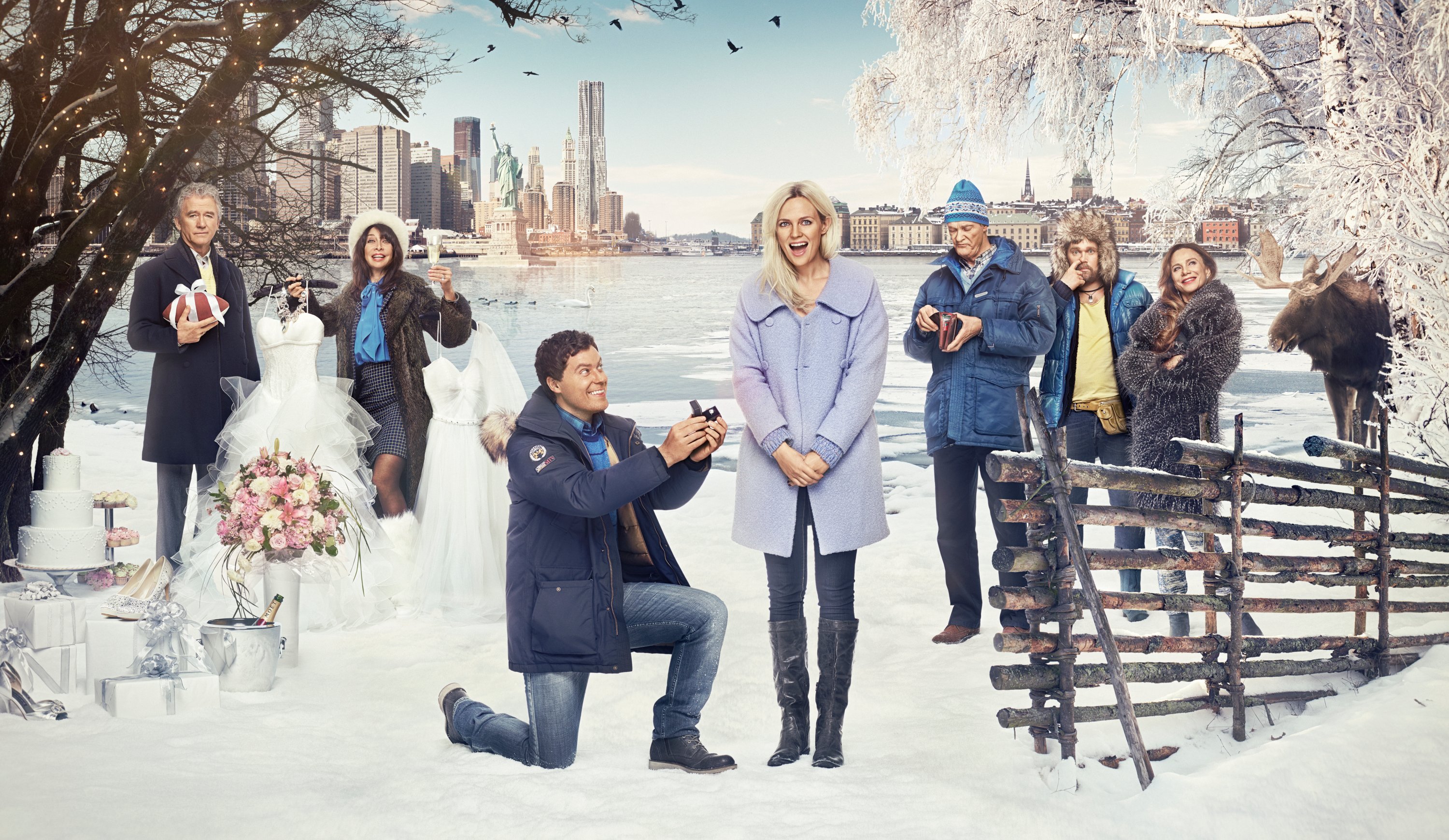Season two of NBC’s “Welcome to Sweden” whimsically explores the subtle cultural differences between the United States and Sweden as protagonists Bruce (Greg Poehler) and Emma (Josephine Bornebush) prepare for marriage. Unlike the vignette-style episodes in season one, season two follows one consistent plot — the couple’s wedding struggles — carving out space for deeper character development and discussion of cultural themes.
Season two is filled with the same lovable cast of characters, living their funnier-than-average Swedish lives: Bruce, who has finally decided to adapt to Swedish culture, learns to juggle the habits of his European life and his American background; Emma frantically strives to assert herself at work; quietly opinionated Birger (Claes Månsson) attempts to voice his thoughts in a louder voice and Gustav (Christopher Wagelin), clueless and immature as ever, bumbles around Stockholm in pursuit of a job. The characters’ lives — and opinions — grow increasingly intertwined as Bruce and Emma’s wedding date approaches, an endless supply of cultural incongruities fueling passionate disagreements among the group members.
Though the show continues to make use of upbeat, subtle cultural humor, the increased amount of slapstick, in-your-face gags associated with Gustav’s role overshadows these quieter jokes. His move to Emma and Bruce’s apartment in the second season places him at the center of several conversations, derailing the couple’s consistently amusing banter. Now divorced from his former home and family unit, Gustav and his not-so-brilliant ideas feature prominently, soaking up far more screentime than necessary. The 30-year-old character’s realization that rent is expensive and that jobs require a resumé are not only unbelievable, but also devoid of laughs. The unrealistically clueless Gustav feels out of place within a show that is deeply rooted in reality.
Some of the cultural practices highlighted also don’t quite fit the gently whimsical “Welcome to Sweden” mold. Bruce’s bachelor party, for instance, seems over-exaggerated and is, for the most part, left unexplained. When Bruce is abducted by his friends, stuffed in a trunk and pelted with paintballs while wearing a bunny suit, we never learn the rationale behind the joke: Is getting kidnapped with no warning truly quintessentially Swedish? And, if it is, why did the police react so seriously when this “kidnapping” was reported by an American visitor? Events like this, again, verge on the unbelievable, generating a cheap laugh or two without any clear value add.
Aside from these fairly minor distractions, the show continues to flawlessly do what it does best, using comedy to contrast American and Swedish culture, and raise some deeper cultural questions along the way. The show takes advantage of Bruce and Emma’s upcoming wedding to emphasize the egalitarian culture of Sweden, which Bruce often fails to understand or refuses to accept. Several of Bruce’s and his parents’ responses hint that perhaps Americans are not yet ready to accept the idea of a truly “equal” marriage.
But what is marriage anyway? “Welcome to Sweden,” which features Bruce’s happily married parents and Emma’s lovingly unmarried parents, forces us to question the meaning of “putting a ring” on a relationship. In Sweden, marriage appears to be a relatively meaningless formality; Emma’s mother contends that it breaks up affectionate relationships. In the United States, however, marriage is widely accepted as a lifelong promise, a symbol of commitment and devotion to one another. “Welcome to Sweden” illustrates that the true importance of any partnership — bound by marriage contract or not — is the underlying connection, the strength to respect one’s differences, tolerate each other’s quirks and support one another, no matter what.
The real question, then, is whether or not the core of Bruce and Emma’s relationship can stand up to the test of cultural discrepancies and everyday opinions. Though there is no telling what new obstacles the future holds for the newly engaged couple, Emma and Bruce are easily up for the challenge.
Contact Lea Sparkman at 16lsparkman ‘at’ castilleja.org.
